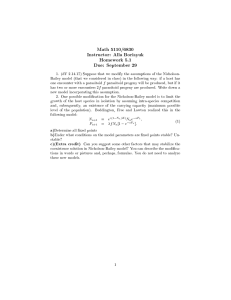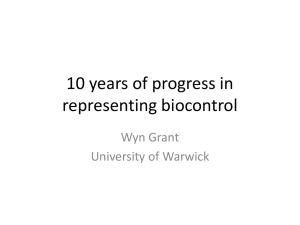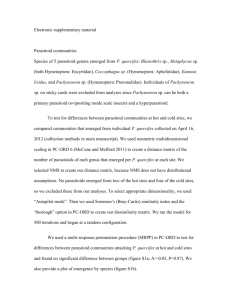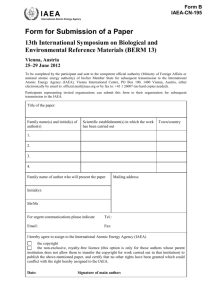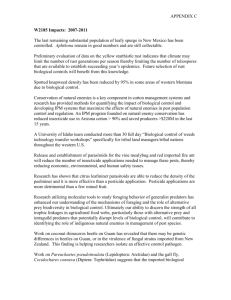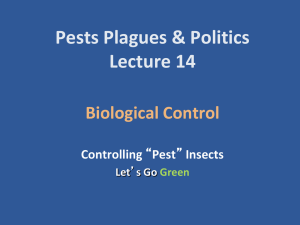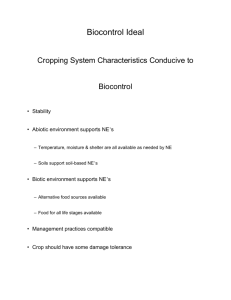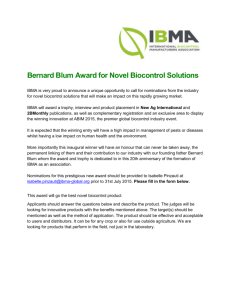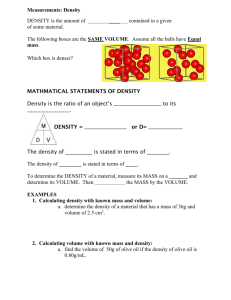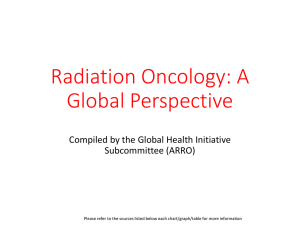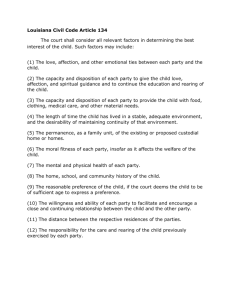ESR PhD Position: Biocontrol Training Network - BINGO
advertisement
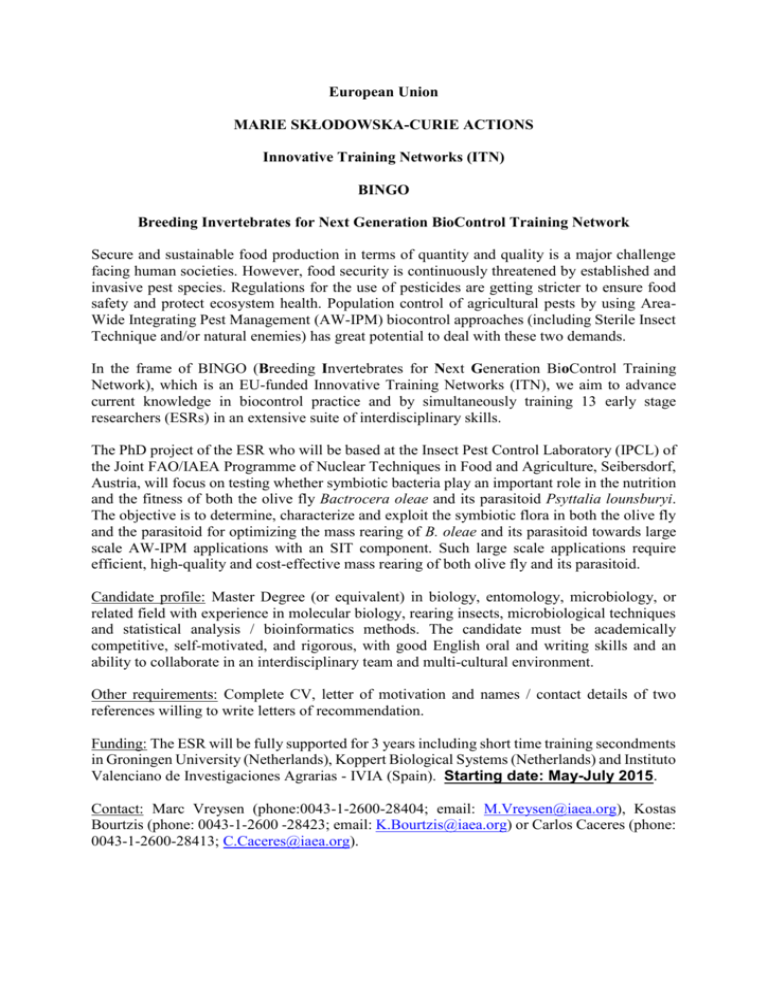
European Union MARIE SKŁODOWSKA-CURIE ACTIONS Innovative Training Networks (ITN) BINGO Breeding Invertebrates for Next Generation BioControl Training Network Secure and sustainable food production in terms of quantity and quality is a major challenge facing human societies. However, food security is continuously threatened by established and invasive pest species. Regulations for the use of pesticides are getting stricter to ensure food safety and protect ecosystem health. Population control of agricultural pests by using AreaWide Integrating Pest Management (AW-IPM) biocontrol approaches (including Sterile Insect Technique and/or natural enemies) has great potential to deal with these two demands. In the frame of BINGO (Breeding Invertebrates for Next Generation BioControl Training Network), which is an EU-funded Innovative Training Networks (ITN), we aim to advance current knowledge in biocontrol practice and by simultaneously training 13 early stage researchers (ESRs) in an extensive suite of interdisciplinary skills. The PhD project of the ESR who will be based at the Insect Pest Control Laboratory (IPCL) of the Joint FAO/IAEA Programme of Nuclear Techniques in Food and Agriculture, Seibersdorf, Austria, will focus on testing whether symbiotic bacteria play an important role in the nutrition and the fitness of both the olive fly Bactrocera oleae and its parasitoid Psyttalia lounsburyi. The objective is to determine, characterize and exploit the symbiotic flora in both the olive fly and the parasitoid for optimizing the mass rearing of B. oleae and its parasitoid towards large scale AW-IPM applications with an SIT component. Such large scale applications require efficient, high-quality and cost-effective mass rearing of both olive fly and its parasitoid. Candidate profile: Master Degree (or equivalent) in biology, entomology, microbiology, or related field with experience in molecular biology, rearing insects, microbiological techniques and statistical analysis / bioinformatics methods. The candidate must be academically competitive, self-motivated, and rigorous, with good English oral and writing skills and an ability to collaborate in an interdisciplinary team and multi-cultural environment. Other requirements: Complete CV, letter of motivation and names / contact details of two references willing to write letters of recommendation. Funding: The ESR will be fully supported for 3 years including short time training secondments in Groningen University (Netherlands), Koppert Biological Systems (Netherlands) and Instituto Valenciano de Investigaciones Agrarias - IVIA (Spain). Starting date: May-July 2015. Contact: Marc Vreysen (phone:0043-1-2600-28404; email: M.Vreysen@iaea.org), Kostas Bourtzis (phone: 0043-1-2600 -28423; email: K.Bourtzis@iaea.org) or Carlos Caceres (phone: 0043-1-2600-28413; C.Caceres@iaea.org).
